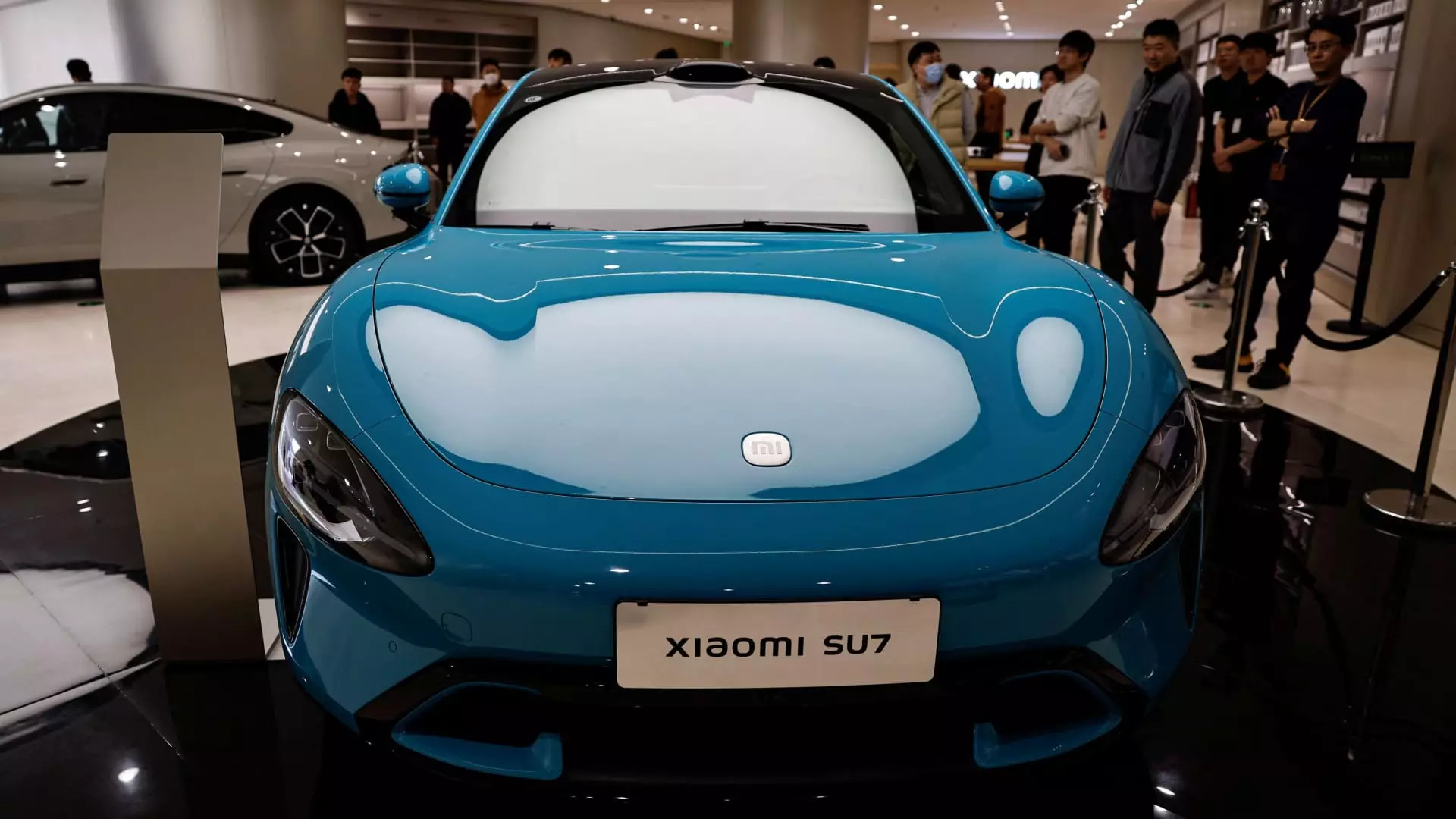The auto industry has been taken by surprise with Xiaomi’s recent foray into the market, following closely behind BYD’s rapid rise. Founder and CEO Lei Jun has set his sights on not only entering the electric car market but also on becoming one of the top five automakers globally within the next two decades. Despite Apple’s decision to abandon its electric car project, Xiaomi’s determination to succeed in this industry is evident.
Xiaomi made waves in the industry by introducing its electric SU7 sedan at a price significantly lower than Tesla’s Model 3. Analysts have started paying closer attention to Xiaomi, viewing it as a potential player in the auto and tech sectors. The company’s ability to outperform competitors in terms of driver-assist technology and smart cabin features could position it as a disruptive force in the market.
With Xiaomi’s stock prices fluctuating after the initial surge following the SU7 launch, analysts are closely monitoring its performance. The company has already received a significant number of orders for the SU7, indicating strong consumer interest. However, some experts remain cautious about Xiaomi’s long-term success, citing concerns about consumer satisfaction and market expectations.
Xiaomi’s focus on integrating its operating system, HyperOS, with its cars and home appliances aims to create a seamless ecosystem for consumers. By offering connected solutions that enhance the driving experience, Xiaomi is setting itself apart from traditional automakers. The potential for recurring revenue through subscriptions and additional services could further boost the company’s growth.
While Xiaomi faces challenges in establishing itself as a prominent player in the EV market, it benefits from existing brand recognition in China. With substantial cash reserves and investments in manufacturing capabilities, Xiaomi is well-positioned to compete with established automakers. The company’s emphasis on automation and smart manufacturing processes bodes well for its long-term profitability.
Despite hints at overseas expansion, Xiaomi has prioritized the Chinese market for its electric car venture. The company’s success in selling smartphones globally has laid the foundation for its entry into the auto industry. However, potential trade tensions and concerns about China’s overcapacity could present obstacles to Xiaomi’s international growth strategy.
Xiaomi’s entrance into the electric car industry represents a significant shift in the competitive landscape. By leveraging its technological expertise and innovative approach, Xiaomi has the potential to disrupt the market and carve out a unique position for itself. As the company navigates challenges and explores opportunities in the evolving auto industry, its success will depend on its ability to deliver exceptional products and services that resonate with consumers worldwide.

